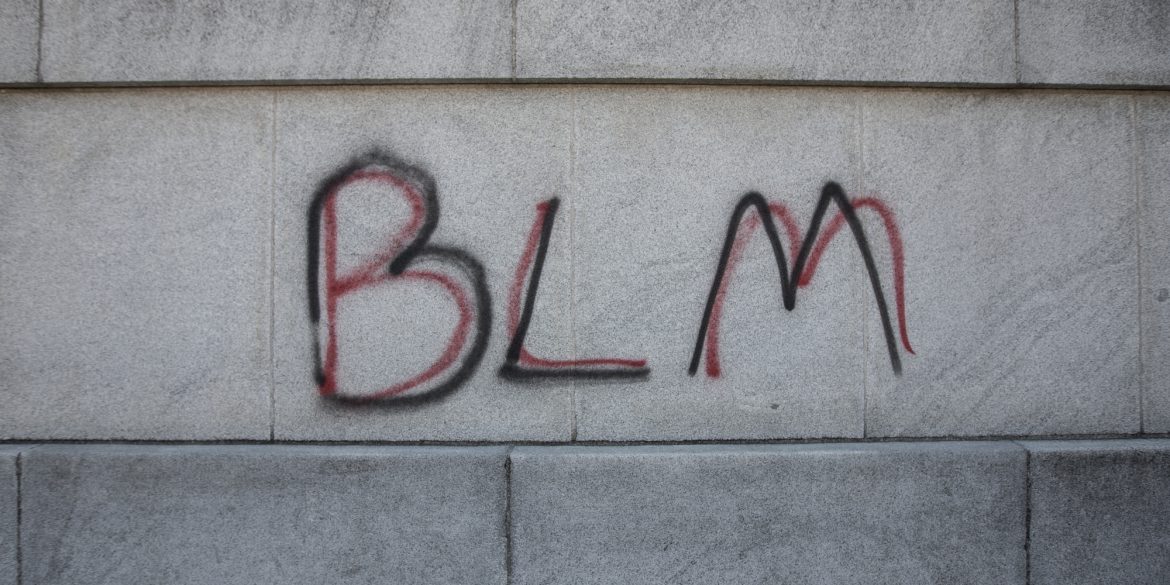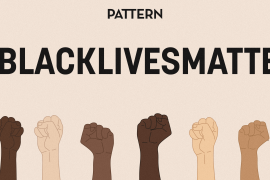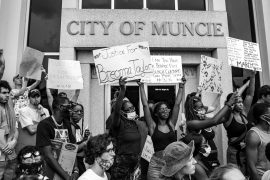Now, more than ever, it is important to bring the conversation about systemic racism into our homes, businesses and day-to-day activities. It is the only way that we can hope to ever heal the divide, and end the pernicious and persistent cycle of violence and discrimination again Black Americans. It is also clear, that without the widespread support from white people, this cycle may never end. But the race conversation is always difficult and often awkward. Education is key, which is why we invited several of Black Americans in our community to talk about how white people can be better allies. If you’ve been asking yourself, “What can I do?” This Black Lives Matter series is for you. – editors
[separator type=”thin”]
I never really thought we’d be having this conversation in the middle of a pandemic, but maybe that was too naive of me. I wish I could say I was surprised about the racial injustices plaguing the US, but I’m not. History seems to keep repeating itself and I can’t help but think, what will really incite large-scale systemic change and justice for Black Americans? I keep coming to the same conclusion. It is the work of the ally that will be this nation’s resolve.
How can the oppressed really fix a system that they did not build in the first place? Black Americans should not be expected to remedy their own suffering. We are not the cause of the issue and therefore we will never alone be the solution. The oppressed should not have to carry the weight of grief and turn around to march and fight for basic human rights and visibility. It would literally take every non black individual who benefits from the system of racism and white supremacy to collectively use their privilege where it counts at all times for us to even put a dent into this ongoing war.
The ally is so essential in this fight. I wish I could say that I’ve had incredible non black allies, but in reality where most allies fall short is their inability to deal with discomfort and being an advocate only when it’s convenient. If you’re a true ally, consider it your second job. Black people don’t get to take off their Blackness. We live discomfort. So you can’t march with me in the streets, then go home after and chop it up with your racist parents, aunts and uncles at dinner, completely disregarding their bigoted comments for the sake of your own comfort.
Everything counts when you’re an ally, even the small instances of you holding your friends, family members and coworkers accountable. You have to be actively using your privilege at all times especially when it may seem uncomfortable, and you can’t rely on Black people to hold your hand while you’re doing it. It’s not even the responsibility of the oppressed to educate anyone. We are not your teachers. You have to be willing to put in the work without the aid of the oppressed.
Also, as cliche as it may sound, allies have to be willing to put their money where their mouth is. If you have any economic privileges and you consider yourself an ally, you need to be asking yourself: am I supporting Black owned brands and businesses, am I donating to the right causes and how can I redistribute my wealth in an impactful way? Capitalism relies on racism due to the simple fact that Black people were once considered capital. Reparations aren’t coming anytime soon, so don’t be afraid to open your purse.
You also need to know when it’s your time to speak and when it’s your time to listen. Once upon a time, I had a friend that I considered an ally, however, there were multiple instances when her white fragility slipped through the cracks. Every time I tried to hold her accountable for her microaggressions, she would start crying. I made my critiques digestible and she still couldn’t handle it. She was incapable of receiving critique and listening to my Black voice, however, she always felt the need to speak on behalf of things that she didn’t quite understand.
Being an ally does not mean speaking on behalf of Black people. We have voices of our own and they need to be valued and listened to. You can’t be afraid of critique and you have to be able to listen. You are not the victim, so your first emotional response should not be tears or getting defensive as if you’re being personally attacked.
I’ll never really know if my critiques resonated with my old friend, but I can only hope that they did and at this exact moment I’m hoping that these words will resonate with you, the reader. I can’t really give anyone a, “step by step how to be a great ally” list, because it’s more than just a set of rules to follow, it’s a lifestyle choice that you have to be willing to make.





Poise. And to the the point! Thank you for exemplifying Black excellence we love to see it sissss ???